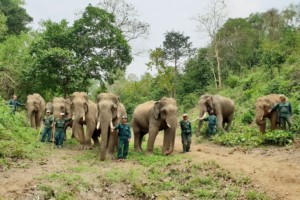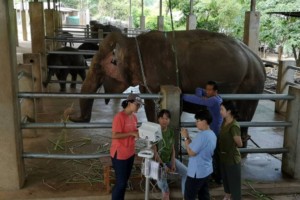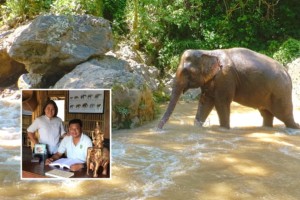Elephant health experts seek emergency funds for unemployed tourism elephants
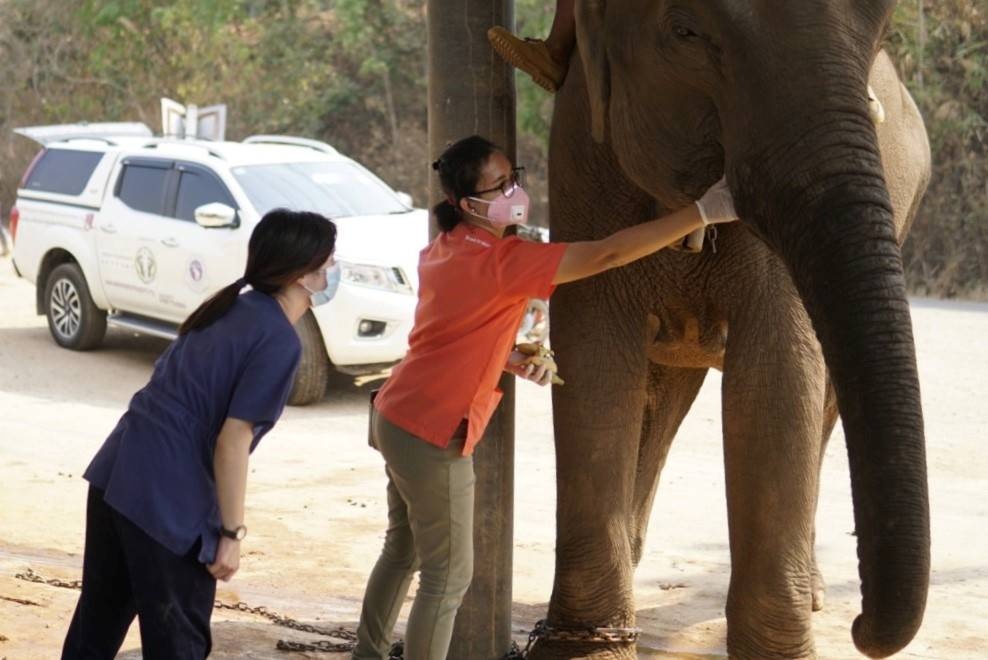
The expression “an elephant in the room” means an uncomfortable truth we cannot ignore. With tourism cash flows stemmed, many Asian elephants and their mahouts in Thailand and elsewhere are in deep trouble. Hollis Burbank-Hammarlund of Work for Wild Life International tells us why that’s the case and how we can help.
COVID-19 has suddenly changed everything. That includes the lives of an estimated 3,500 captive Asian elephants in Thailand and the people who ensure their well-being.
Elephant sanctuaries and camps have closed. Many working elephants, like humans, are in lock down mode. In much of Thailand, wild forests no longer exist so release is impossible. For many captive elephants this means being shackled on chains day and night, indefinitely. Worse yet, some elephants may find themselves back on the streets in dangerous situations, begging for donations on behalf of their mahouts who are now living with vastly reduced or no income.
With COVID-19’s arrival, tourists have abruptly vanished from Thailand along with crucial funds needed to support the health and welfare of elephants living under human care. As the months tick by under the uncertainty of this puzzling pandemic, emergency veterinary services will be in short supply and elephants will be in trouble.
In a perfect world, elephants would not live in captivity and their fate would not depend on tourism. But they do and it does. Elephant experts predict food will be in short supply and of poor quality in the months ahead. Sadly, for some elephants, malnutrition (and even starvation) is on the horizon. And so, a downward spiral toward life-threatening health conditions appears inevitable.
And now, when Thailand’s elephants need good healthcare more than ever, elephant veterinarians are being laid off — the first to be cut from the payrolls as elephant owners scramble to whittle their budgets down to the bare minimum. Wounds, infections, traumatic injuries, and the growing effects of malnutrition will go untreated. Many elephants will suffer. Some will die.
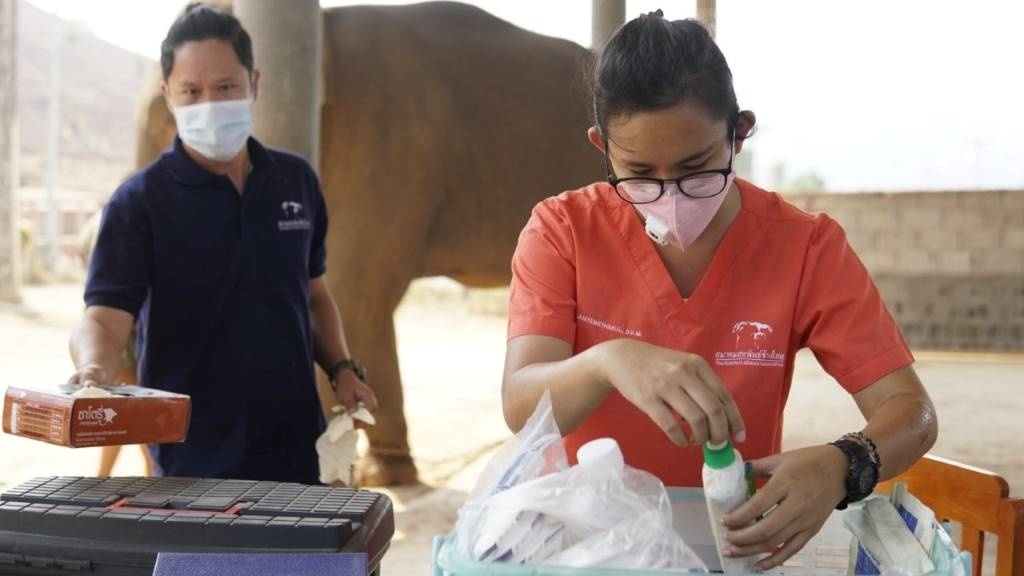
Mae Noi’s emergency
The story of Mae Noi, a 16-year-old female elephant living in Huai Phakkud, Thailand, is a shining example of the importance of early veterinary intervention for captive elephants and the need to keep veterinarians on the job during the COVID-19 pandemic. Indeed, they are essential workers.
In early April, 2020, the Thai Elephant Alliance Association (TEAA) Volunteer Veterinary Team — comprised of veterinarians employed at camps throughout the country who donate their time and resources to help elephants in need — was urgently dispatched to the field to evaluate Mae Noi’s deteriorating condition. It was a four-hour drive along winding roads to reach her village.
The TEAA team performed a physical examination and observed Mae Noi’s behavior. She desperately wanted to eat but was physically unable to swallow food or water. The soft tissue in her mouth was crimson red, swollen, and extremely painful. She was agitated and confused, and her mahout and local villagers were worried.
The team learned from Mae Noi’s mahout that her normal diet consisted of Napier grass and plantation fruit. He also recounted a brief moment in recent days when he observed her foraging on a few branches of a nearby tree. It was a Burmese lacquer tree whose sap causes a severe allergic reaction. Fortunately for Mae Noi, the TEAA team of vets was able to dilute the toxic sap coating her mouth and throat with saline and chlorhexidine. They administered anti-inflammatory, anti-allergic, and pain-relieving medications intramuscularly.
Mae Noi has made a full recovery from her ordeal but, like all elephants in Thailand, she faces an uncertain future fraught with the possibility of new healthcare crises with fewer options for help.
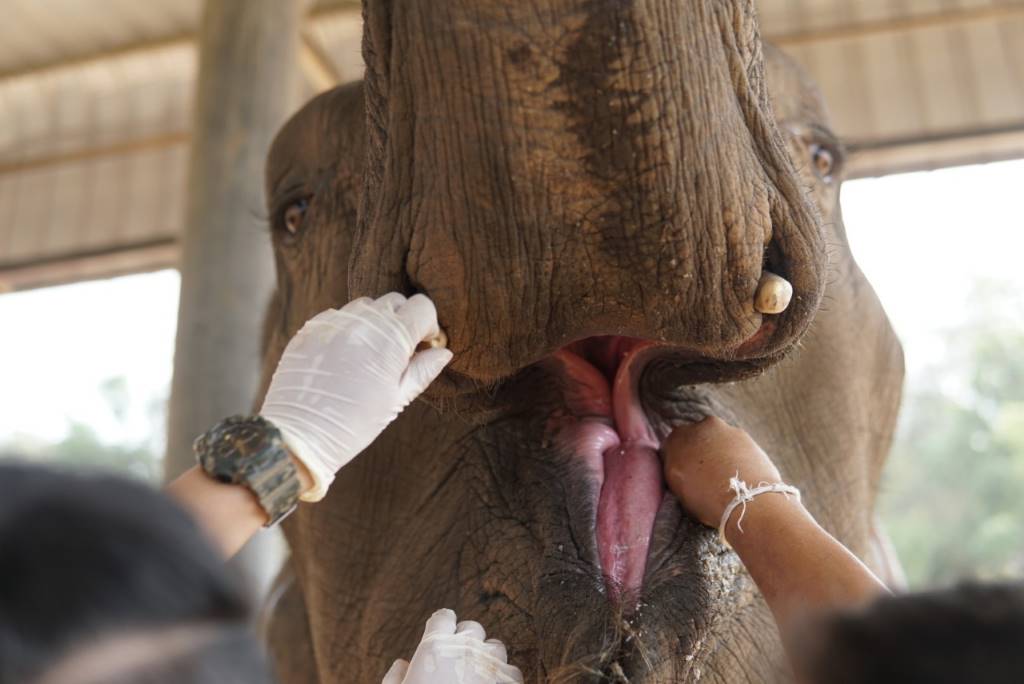
Elephant Healthcare Emergency Lifeline Fund keeping vets on the job
Delivering care to elephants like Mae Noi when and where they need it is essential. And so a group of elephant experts from around the globe have teamed up to create the Elephant Healthcare Emergency Lifeline Fund.
Donations to the fund will help keep Thailand’s elephant veterinarians on the job until the COVID-19 crisis has passed, the economy has stabilized, and elephants are made well again. Funds will also purchase veterinary medicines, support health exams, and deliver essential emergency veterinary services to the elephants that need it most.
This fundraising initiative is a joint effort of renowned elephant healthcare experts Dr Susan Mikota, Elephant Care International (ECI) Director of Veterinary Programs and Research; and Dr Janine Brown, Research Physiologist and ECI Advisor.
Drs Mikota and Brown are working in collaboration with John Roberts of the Golden Triangle Asian Elephant Foundation (GTAEF) and me.
Donations will be administered by GTAEF, a Thai-registered NGO which aims to improve the lives and welfare of captive elephants. The team’s goal is to raise $25,000 or more. Donations to the Elephant Healthcare Emergency Lifeline Fund are collected via Elephant Care International, a US-based 501(c)(3) nonprofit co-founded and directed by Susan Mikota, DVM.
–> CLICK/TOUCH HERE to DONATE <–
Featured image (top of post): Dr Sarisa Klinhom (left) & Dr Tittaya Janyamethakul attend to elephant Mae Noi in Huai Phakkud, Thailand. Image supplied by author.
About the author
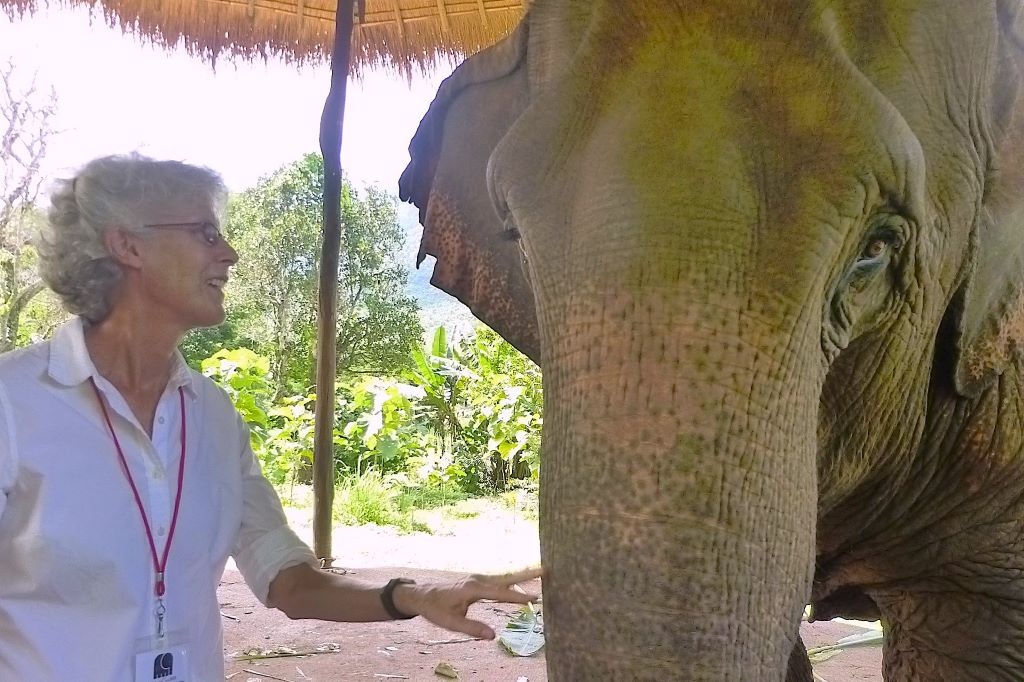
As Founder & Director of Work for Wild Life International, Hollis Burbank-Hammarlund telecommutes from her home office in Vermont, USA and travels to Asia for onsite work. As a project developer, fundraiser, and logistics manager, she teams up with NGOs and experts from all around the globe to support wildlife conservation and animal welfare initiatives in Indonesia, Nepal, Vietnam, Myanmar, Sri Lanka, and Thailand, with a focus on endangered elephants and orangutans.
Recent elephant-related projects include the Elephant Healthcare Emergency Lifeline Fund (2020); “Everything Elephants” (2019); ElephantCARE ASIA Workshop (2018); and EleVETS Training Program — Sri Lanka (2017). From 2011 – 2013, Hollis helped raise nearly US$750,000 to purchase and permanently protect the Rawa Kuno Legacy Forest — 7,900 acres of at-risk orangutan habitat in Borneo.


